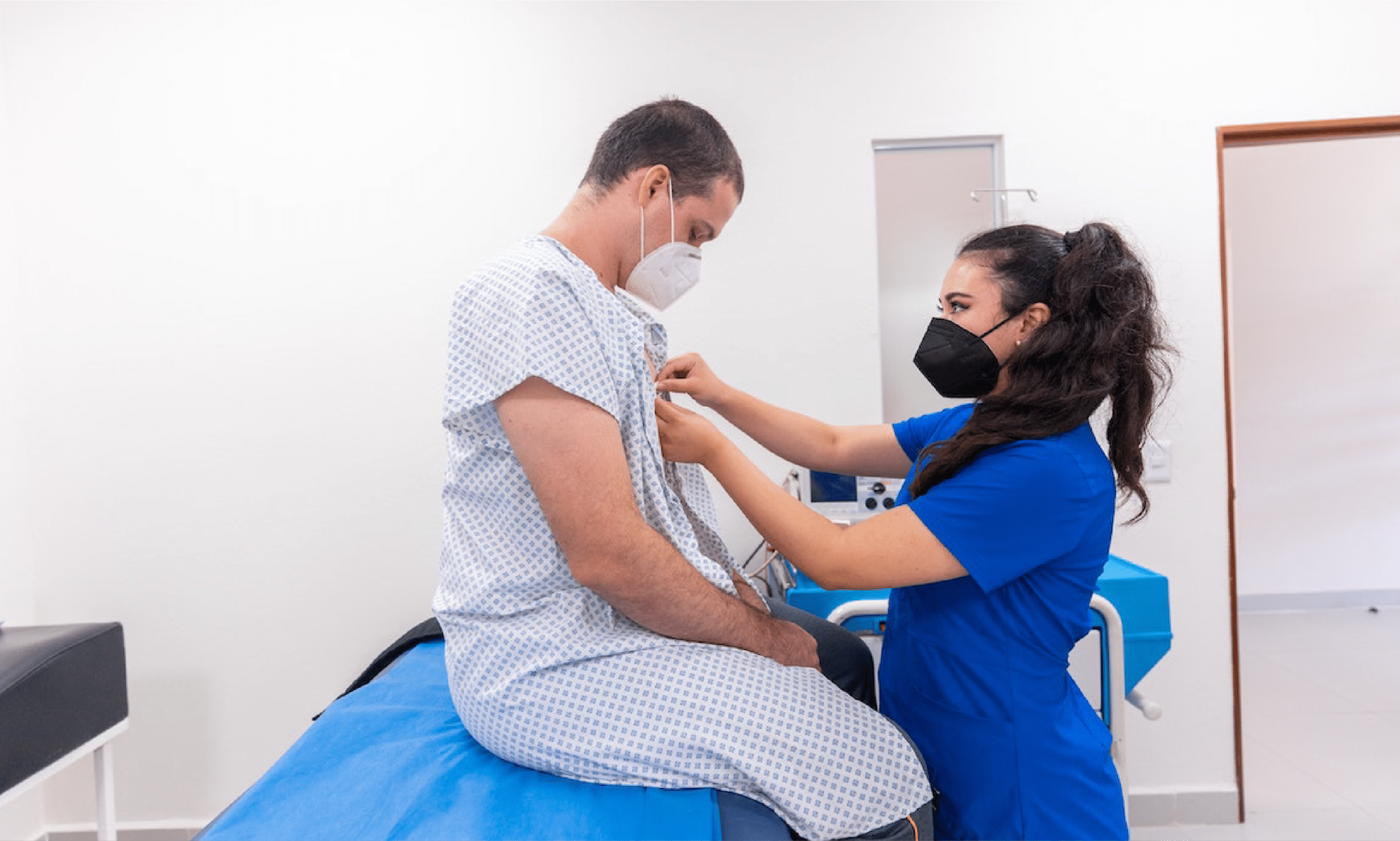Should I Go to the Doctor After a Car Accident?

In 2019, the Illinois Department of Transportation reported a total of 63,834 crashes involving injuries. Of the state’s reported 312,988 crashes involving motor vehicles in Illinois that year, 938 involved fatalities, which is less than 1 percent but averaging nearly three a day.
The Missouri Department of Transportation reported a total of 23,576 seriously injured from car crashes occurring from 2014 to 2018, and an added 4,436 fatalities on roadway crashes in their state during that same time frame.
These numbers themselves might be alarming. But there is something that may be more alarming. There is a high probability that many of the injured crash victims did not accept medical treatment on the scene or seek it out immediately afterward because they thought they had no injuries, or thought their injuries were minor.
Being in a car accident can push the people involved into a state of mental shock, where they cannot think clearly about what they need to do next. It can also put their bodies into physical shock, where trauma does not show up clearly until much later.
It is essential to go to the doctor after a car accident. There may be hidden problems that do not reveal themselves until the later hours, days, and weeks following an accident. Any delay in medical treatment may lead to some serious, or even life-changing, outcomes.
Car Accident Injuries May Be Hidden or Delayed at First
Many times, injuries that result from a car accident are not immediately obvious. This is because the human body will often enter a state of shock following the accident as a natural protective measure. The traumatic shock may last for hours, days, or even weeks, and shield the car accident victim from higher levels of pain, loss of mobility, as well as injury awareness.
The most common injuries to occur from being in a car accident that may not show themselves right away involve the head, neck, and spinal cord. Other injuries to the muscles, joints, tendons and other soft tissues cannot be detected without medical attention.
For example, what might be a slight headache immediately following the crash could actually be a sign of a concussion or other serious traumatic brain injury. This type of injury can only be found through medical attention at the scene or when by a doctor following the accident. And any resulting stiffness and soreness injuries, including whiplash, can take days or weeks to show themselves.
Other injuries, such as internal bleeding or bone fractures, can only be detected through a CT scan, an MRI, or through X-rays.
Even if there is no obvious injury, seeking medical attention documents any potential injuries, connects them to the accident, and informs crash victims what to look out for in the weeks ahead of any delayed or hidden injuries and trauma.
PTSD Can Be a Life-Changing, Yet Hidden Injury

Long after a car accident victim’s physical wounds heal; mental and psychological wounds can still cause pain. One possible life-changing outcome can be the development of PTSD (Post Traumatic Stress Disorder). A victim could also develop other mental personal injuries.
Living with the effects of a car accident injury like PTSD can change a victim’s life forever. PTSD symptoms may be triggered regularly or only on occasion, and the disorder may last for a brief time following a car accident or for years.
PTSD symptoms such as flashbacks, nightmares, any reliving of the trauma from the accident, or a developed fear of driving or being a vehicle passenger, can have a lasting and significant effect on an accident victim’s personal and professional life. It can make it difficult or impossible for the victim to keep a job.
Filing and collecting on a claim that covers damages for emotional or psychological injuries such as PTSD comes with its own unique challenges. These types of injuries can be difficult to diagnose and even harder to prove. Often there are no visible outward signs that point to a psychological injury from the car accident. There is also no simple test to detect a PTSD injury.
Car accident victims should seek treatment for injuries as soon as possible. This ideally includes an assessment of their trauma coping levels. Documentation is especially important in establishing that the PTSD effect resulted from the car accident, so seeing a mental health professional at the first signs of any suspected PTSD symptoms is crucial. A PTSD diagnosis provided by a mental health professional may act as evidence toward your injury claim.
Documenting Injuries Strengthens Claims and Cases
For a fairly processed insurance claim, or if the car accident ends up as a court case, a proper medical diagnosis is imperative. Not going to the doctor after a car accident could ruin your chances of proving your case in court or with an insurance claims adjuster. Either may use the fact that you did not see the need for medical attention to have your claim reduced or denied entirely.
Delayed medical attention can also result in the opposing attorney or insurance adjuster arguing that you are not as hurt or in as much pain as you claim to be.
Victims need to receive compensation for the expensive medical care that will help them return to full health (or as close as possible). Going to the doctor immediately after a car accident helps provide the attorneys representing the victims the proof they need to get the victims the compensation they deserve.
If a car accident victim does not have their own doctor, an experienced law firm can also help connect them to the care they need. A law firm like Hipskind & McAninch has contacts in the medical community, including specially trained doctors who understand both traumatic injuries and how to effectively deal with insurance companies.
Experienced attorneys can arrange the necessary appointments and tests for car accident victims, getting them on the road to recovery while also documenting injuries for filing a claim.
An Experienced Attorney Can Help You Get a Fair Settlement

In Illinois, the statute of limitations is 2 years from the time of an incident for victims to file a lawsuit. In a civil lawsuit, the victim can sue for damages that include things like medical bills, ongoing care, lost wages, and pain and suffering. The statute of limitations in Missouri is 5 years. These time constraints make it even more important to get medical attention as soon as possible.
When a car accident is someone else’s fault, the victim deserves to have their physical and financial well being restored. The goal of any car accident injury claim in Belleville or any other type of personal injury settlement is to “make whole.” This means getting the appropriate level of treatment to get the person back to full health, or as close as possible, as well as a monetary settlement to cover those expenses.
After a car crash, even if it is not a serious one, go to a doctor. Then, talk to an attorney. It might be the only way to help ensure full compensation for car repairs and all the injuries suffered. Our St Louis car accident lawyers have helped numerous clients over the years with their car accident claims and would be happy to discuss your case further.
Category:
Tags:
car accident settlements, personal injury, personal injury compensation